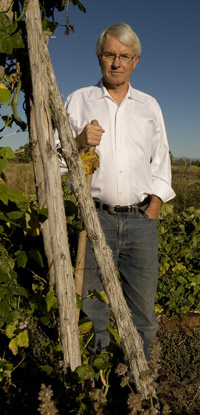Poverty. Food insecurity. A racist, classist, sexist food system. Issues of food justice. Urban supermarket abandonment and food deserts. And the overlapping and connecting of obesity, hunger and poverty. Tricky, complex and difficult issues. Wondering how to jump into the conversation? Or where to even begin? I was too, until I picked up September’s Simple, Good and Tasty book club pick. Closing the Food Gap: Resetting the Table in the Land of Plenty, by author Mark Winne is turns out to be an enlightening place to start.
Told from Winne’s personal experiences as a boy growing up in rural (read: farm-filled) New Jersey and as a new adult resident in Hartford, Connecticut, the book allows readers to connect to these food issues in a truly personal way. And challenges you to learn more and act accordingly.
From Publisher’s Weekly: from markwinne.com
from markwinne.com
Through the lens of Hartford, Connecticut — a quintessential inner city bereft of decent food options apart from bodegas and fast food chains — Winne explains the successes he witnessed and helped to create: community gardens, inner city farmers' mark ets and youth-run urban farms. The author concludes his tale in our present food-crazed era, giving voice to low-income shoppers and exploring where they fit in with such foodie discussions as local vs. organic. In this articulate and comprehensive book, Winne points out that the greatest successes have been an informal alliance between sustainable agriculture and food security advocates, which shows promise for helping both the poor as well as small and medium-size farmers.
Winne’s story is full of history, research and real-life examples of how we got to where we are today. Even if you haven’t experienced hunger or food insecurity (or don’t really understand the difference), Closing the Food Gap is an easy to read and fiercely memorable tale.
Here’s a sample of this month’s book club discussion questions:
- How did you react to the history of the food system and implications of the various programs and policies? Were you aware of all of this, or understanding it in context for the first time?
- Publisher’s Weekly says: “Winne concludes his tale in our present food-crazed era, giving voice to low-income shoppers and exploring where they fit in with such foodie discussions as local vs. organic.” Talk about the implications of income on the accessibility of local, organic and sustainable food.
- Do you make other personal decisions (such as forgoing something else in your budget) in order to be able to make better food choices? What would happen if your food budget were cut in half; how would you manage?
- What can we, as individuals, do to make a difference? Is being a responsible food system consumer good enough?
Light reading it's not, but Closing the Food Gap raises some weighty issues. We hope you can join us at this month's book club discussion. As usual, we'll be at Mississippi Market Natural Foods Co-op’s Selby location on Thursday, September 30th from 7 to 9:00 p.m. and at the Harmony Co-op in Bemidji from 6 to 8:00 p.m. We look forward to seeing you there!

Tracy Morgan is a frequent contributor to Simple, Good and Tasty. She also runs Segnavia Creative, a business development and marketing firm, and serves on the board of directors for the Mississippi Market Natural Food Co-op in St. Paul.




